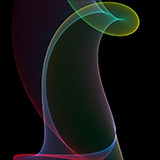

![]()
home
::: about
::: news
::: links
::: giving
::: contact
![]()
events
::: calendar
::: lunchtime
::: annual
lecture series
::: conferences
![]()
people
::: visiting fellows
::: postdoc fellows
::: senior fellows
::: resident fellows
::: associates
![]()
joining
::: visiting fellowships
::: postdoc fellowships
::: senior fellowships
::: resident fellowships
::: associateships
![]()
being here
::: visiting
::: the last donut
::: photo album
::: center home >> events >> conferences >> 2016-17 >> descartes day |
|
Descartes Day III 15 October 2016 Registration is required. To register, email cmg84@pitt.edu Descartes Day III is a one-day Descartes workshop featuring renowned Descartes scholars from around the country (and internationally.) It will be the third in a series of similar workshops previously held at Princeton and Pitt beginning in 2004. We plan for DD3 to truly be a workshop. NO papers will be given. It will be all about discussion, with the day broken into discussion topics. The topics tentatively are:
Text references in these topics are meant only as suggestions. Discussion is not and should not be confined to the suggested texts. Discussion is limited to the invited participants. BUT interested auditors are welcome, and will have a brief chance to speak at the end of the day. Auditors MUST register in advance. The number of auditors is very limited. See above for registration information. Organizing Committee SPONSOR:
|
|